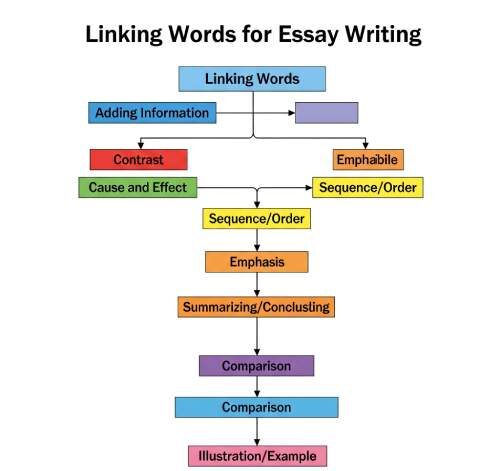Easy steps: how to use linking words in IELTS for Nurses 2025

For nurses aiming to work in English-speaking countries, mastering the International English Language Testing System (IELTS) is a critical step. how to use linking words in IELTS for Nurses 2025, While many candidates diligently study vocabulary and grammar, a key to achieving a high score in the Writing section often lies in a skill many overlook: the use of linking words, or cohesive devices.

These aren’t just filler words; they are the essential framework that connects your ideas, creating a logical and easy-to-follow flow for the examiner. In the IELTS test, a significant portion of your score is dedicated to Coherence and Cohesion, a category that assesses how well you organize and link your thoughts. For a healthcare professional whose career depends on clear communication, mastering these tools can be the very factor that turns a good score into the high band score required for professional registration.
Think of your IELTS Writing tasks as building a logical and coherent argument or description. Your ideas are the bricks, and linking words are the mortar that binds them together, creating a strong and structurally sound piece of writing. Without them, your essay can feel disjointed, making it difficult for the examiner to follow your train of thought, ultimately impacting your score for Coherence and Cohesion, which constitutes a significant 25% of your total Writing mark.
This comprehensive guide is specifically designed for nurses preparing for the IELTS exam. We will delve into the essential categories of linking words, provide practical examples directly relevant to the healthcare profession, and highlight common mistakes to avoid. By mastering these linguistic tools, you can elevate your writing, demonstrate a sophisticated command of English, and significantly increase your chances of achieving the desired IELTS band score.
Understanding Coherence and Cohesion: The Foundation of Strong Writing
Before we dive into the specific linking words, it’s essential to understand the concepts of coherence and cohesion and why they are so vital in IELTS writing.

Coherence refers to the overall logical flow and organization of your ideas. A coherent essay presents information in a clear, structured manner, with each paragraph building upon the previous one to support a central argument or description. It’s about making sense to the reader.
Cohesion, on the other hand, refers to the grammatical and lexical connections between sentences and paragraphs. Linking words are the primary tools for achieving cohesion. They act as signposts, guiding the reader through the text and highlighting the relationships between different parts of your writing.
Imagine reading a patient’s medical chart where the notes are jumbled and lack any logical sequence. It would be incredibly difficult to understand the patient’s history or current condition. Similarly, an IELTS essay without effective linking words can leave the examiner feeling lost and unable to fully grasp your ideas.
The Unspoken Struggles: A Hopeful Look at Mental Health for Nurses 2025
The Essential Linking Word Toolkit for Nurses: With Healthcare-Specific Examples
how to use linking words in IELTS for Nurses 2025
To effectively enhance your IELTS writing, it’s crucial to familiarize yourself with different categories of linking words and understand their specific functions. Here’s a breakdown with examples tailored for nurses:
1. Linking Words for Adding Information:
These words help you introduce additional points, supporting details, or examples that reinforce your main idea.
- In addition: “The patient’s blood pressure was elevated. In addition, they reported experiencing severe headaches.”
- Furthermore: “Nurses play a critical role in patient education. Furthermore, they provide essential emotional support to families.”
- Moreover: “The hospital is facing a shortage of specialized nurses. Moreover, many existing staff are experiencing burnout due to heavy workloads.”
- Also: “Effective communication is vital in nursing. Clear documentation is also essential for continuity of care.”
- As well as: “Monitoring vital signs is a key nursing responsibility, as well as administering medications according to the physician’s orders.”
2. Linking Words for Contrast and Concession:
These words are used to introduce opposing ideas, limitations, or unexpected outcomes.
- However: “The new medication showed promising results in clinical trials. However, further research is needed to assess its long-term effects.”
- Nevertheless: “The patient’s prognosis was initially poor. Nevertheless, with intensive care and dedicated nursing, they made a remarkable recovery.”
- On the other hand: “Home healthcare offers patients greater autonomy. On the other hand, it requires significant support from family members.”
- In contrast: “The incidence of infectious diseases has decreased in developed countries. In contrast, it remains a significant public health concern in many developing nations.”
- Despite: “Despite the challenges of working night shifts, many nurses find it a rewarding experience.”
- Although: “Although technology has streamlined many administrative tasks, the human element of nursing remains irreplaceable.”
- While: “While some patients respond well to conventional treatment, others may require alternative therapies.”
3. Linking Words for Cause and Effect:
These words demonstrate a direct relationship between events or ideas, showing why something happened or what the consequences were.
- Therefore: “The patient’s oxygen saturation levels dropped significantly. Therefore, immediate oxygen therapy was initiated.”
- Consequently: “The lack of adherence to medication protocols led to a relapse in the patient’s condition. Consequently, more intensive monitoring was required.”
- As a result: “The aging population is increasing. As a result, there is a growing demand for geriatric nurses.”
- Because: “The spread of the infection was contained because of the prompt implementation of strict hygiene protocols.”
- Due to: “The surgery was delayed due to unforeseen complications.”
- For this reason: “The patient reported severe pain. For this reason, pain medication was administered as prescribed.”
4. Linking Words for Giving Examples:
These words help you illustrate your points with specific instances or clarify your meaning.
- For example: “Effective communication skills are crucial for nurses. For example, explaining a complex medical procedure in simple terms to a worried patient.”
- For instance: “Maintaining patient confidentiality is paramount. For instance, discussing a patient’s case in a public area would be a serious breach of ethics.”
- Such as: “Nurses encounter various ethical dilemmas, such as situations involving end-of-life care or informed consent.”
- To illustrate: “The importance of teamwork in a hospital setting cannot be overstated. To illustrate, during a medical emergency, seamless coordination between doctors, nurses, and other healthcare professionals is vital for a positive outcome.”
5. Linking Words for Sequencing and Listing:
These words help you organize your ideas in a logical order, whether chronologically or by importance.
- Firstly, Secondly, Thirdly: “Firstly, assess the patient’s airway, breathing, and circulation. Secondly, monitor their vital signs. Thirdly, notify the attending physician.”
- To begin with: “To begin with, gather all necessary medical equipment before starting the procedure.”
- Next: “After administering the medication, next, document the time, dosage, and route.”
- Then: “The patient was stabilized; then, they were transferred to the intensive care unit.”
- Finally: “Finally, after the patient’s discharge, provide them with clear instructions for follow-up care.”
6. Linking Words for Summarizing and Concluding:
These words help you wrap up a paragraph or your entire essay, restating your main points in a concise manner.
- In conclusion: “In conclusion, the effective use of linking words is paramount for achieving a high score in IELTS Writing.”
- To summarize: “To summarize, nurses can significantly improve their writing by consciously incorporating a variety of cohesive devices.”
- In short: “In short, master linking words to master IELTS Writing.”
- To sum up: “To sum up, attention to coherence and cohesion through linking words can be a game-changer for nurses taking the IELTS.”
- Ultimately: “Ultimately, strong communication skills, including the effective use of linking words, are essential for providing quality patient care and advancing your nursing career internationally.”
Common Mistakes to Avoid When Using Linking Words:
While incorporating linking words is crucial,

it’s equally important to use them correctly and avoid common pitfalls:
- Overuse: Don’t try to cram a linking word into every sentence. This can make your writing sound unnatural and forced. Use them strategically to highlight the logical connections between ideas.
- Incorrect Punctuation: Pay close attention to the punctuation rules associated with different linking words. For example, many linking adverbs (like however, therefore, consequently) are often followed by a comma when they start a sentence.
- Formal vs. Informal Language: Be mindful of the register of your writing. Avoid using overly informal linking words (like so, but, and at the beginning of sentences) in formal IELTS essays.
- Using the Wrong Word: Ensure you understand the precise meaning of each linking word before using it. Using a word incorrectly can disrupt the logical flow and confuse the reader. For example, don’t use a word that indicates contrast when you want to add information.
Practical Application: Integrating Linking Words into Your IELTS Writing Practice
The key to mastering linking words is consistent practice. Here are some practical steps you can take:
- Active Reading: When you read articles, especially academic or professional texts related to nursing or healthcare, actively identify the linking words the author uses and analyze why they chose those specific words.
- Conscious Writing: When practicing your IELTS Writing tasks, make a deliberate effort to incorporate a variety of linking words from different categories. Don’t just stick to the basic ones.
- Review and Revise: After writing a practice essay, specifically review your use of linking words. Are there places where you could have used a stronger or more appropriate cohesive device? Have you overused any particular word?
- Seek Feedback: If possible, get feedback on your writing from a teacher or tutor who can specifically comment on your coherence and cohesion.
Linking Your Way to a Higher IELTS Score
In conclusion, for nurses aiming to achieve a high band score in the IELTS Writing section, mastering the art of using linking words is not merely an optional extra – it is an essential skill. By consciously incorporating a diverse range of cohesive devices, you can enhance the clarity, flow, and logical organization of your writing, demonstrating a sophisticated command of the English language.

Remember to use these words strategically, paying attention to their specific functions and avoiding common pitfalls. With dedicated practice and a focused effort on improving your coherence and cohesion, you can confidently link your ideas together and pave the way for success in your IELTS exam and your future nursing career in an English-speaking environment.
IELTS Resources
-
IELTS.org – Writing Band Descriptors
https://www.ielts.org/about-the-test/how-ielts-is-scored
(Explains how “coherence and cohesion” — which includes linking words — are scored in IELTS Writing.) -
British Council – IELTS Writing Tips
https://takeielts.britishcouncil.org/take-ielts/prepare/writing
(Official tips and sample tasks for Writing Task 1 & Task 2, with focus on linking ideas.) -
Cambridge English – Linking Words for Writing
https://www.cambridgeenglish.org/learning-english/activities-for-learners/c1w004-using-linking-words
(Interactive resource on choosing the right connectors in academic writing.)
Academic Writing & Grammar Guides
-
Purdue Online Writing Lab (OWL) – Transitional Devices
https://owl.purdue.edu/owl/general_writing/mechanics/transitional_devices.html
(Extensive list of linking words, grouped by function, useful for IELTS Task 2.) -
University of Manchester – Academic Phrasebank
https://www.phrasebank.manchester.ac.uk/
(Collection of sentence starters and connectors for structuring academic essays.)
IELTS-Specific Linking Word Lists & Examples
-
IELTS Liz – Linking Words for IELTS Writing
https://www.ieltsliz.com/linking-words-for-writing/
(Comprehensive list of linkers with example sentences tailored for IELTS.) -
IELTS Advantage – Coherence and Cohesion
https://www.ieltsadvantage.com/2015/09/08/ielts-coherence-and-cohesion/
(Breakdown of how linkers affect your band score, with do’s and don’ts.)



One Comment